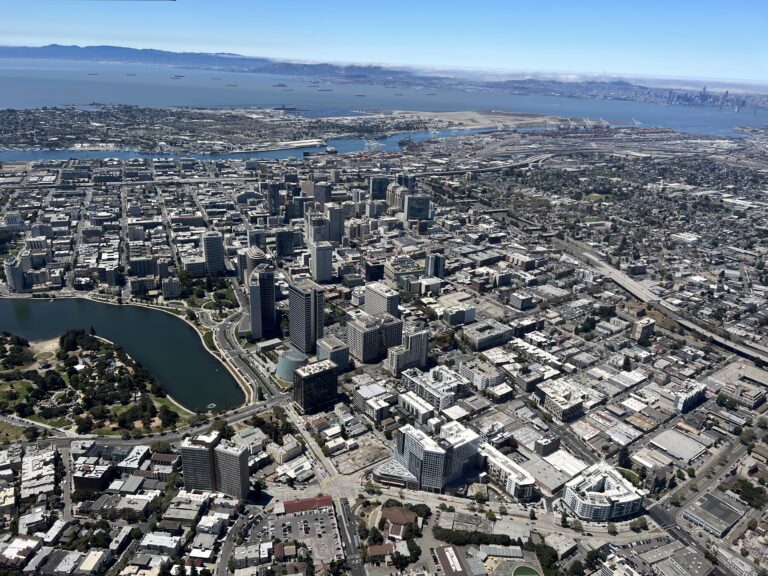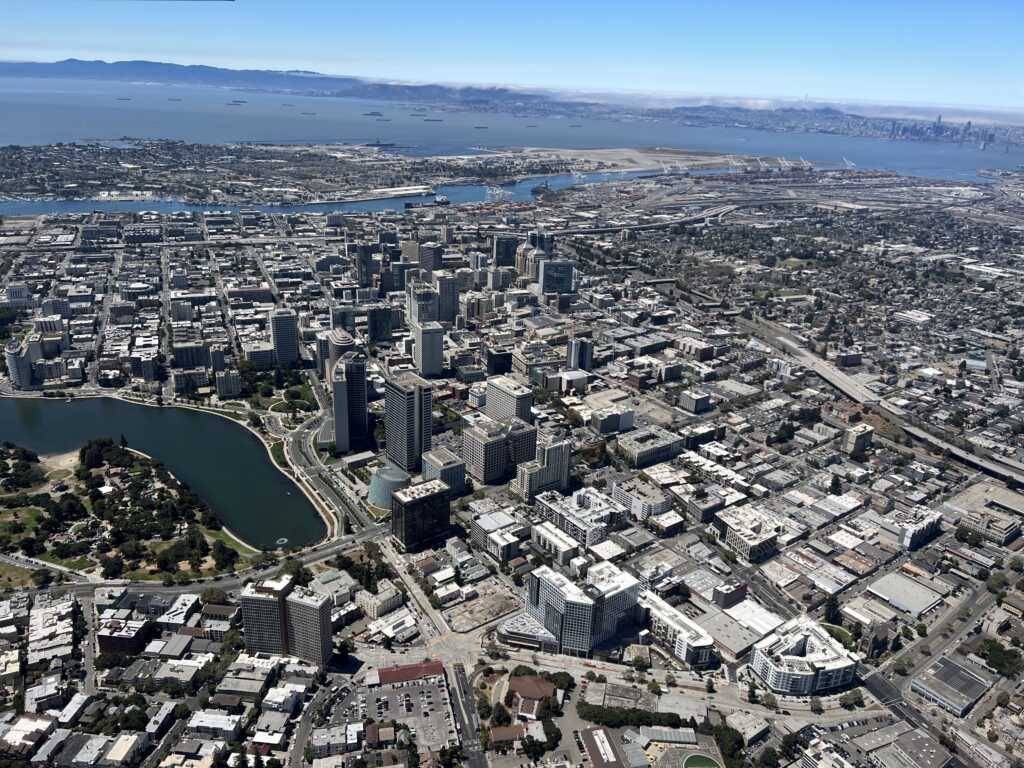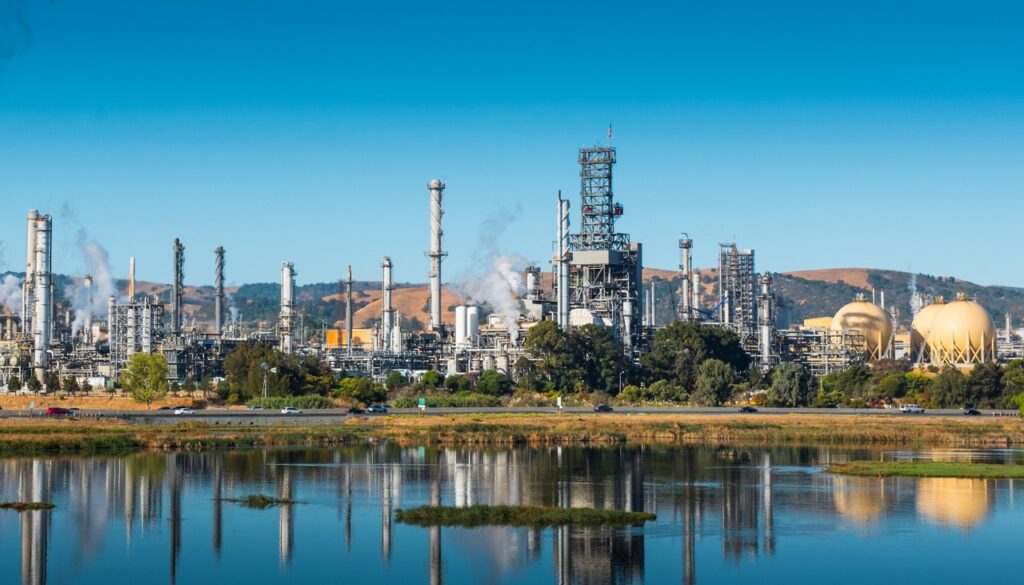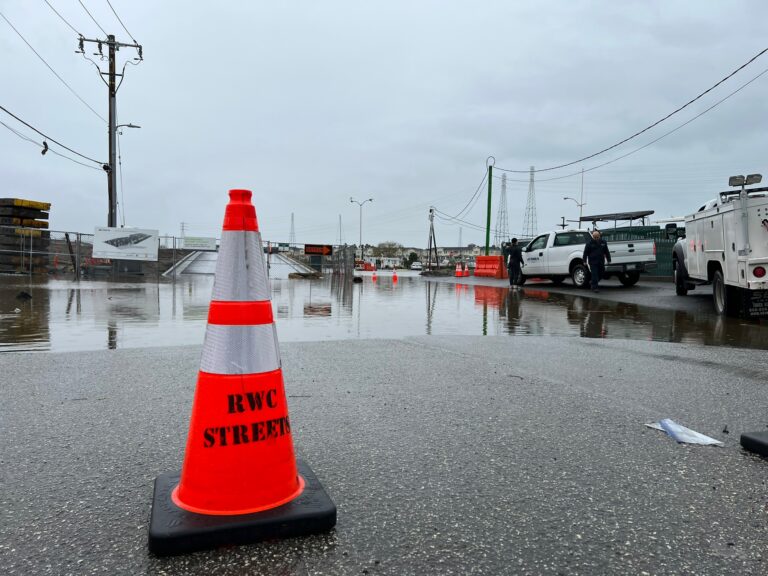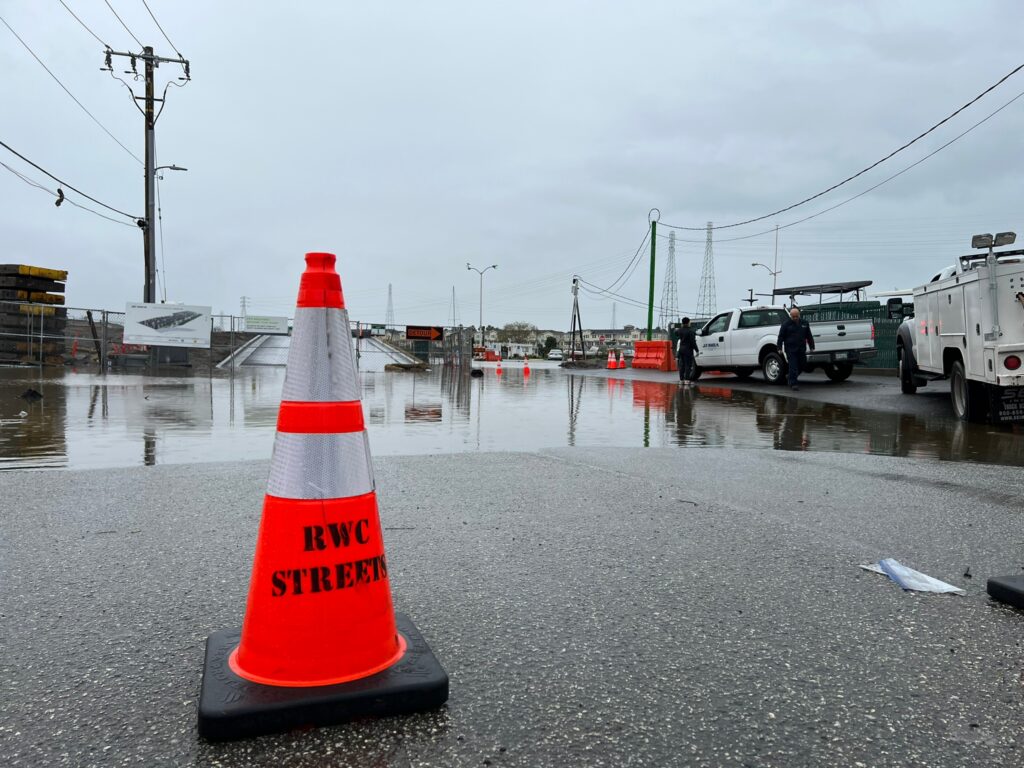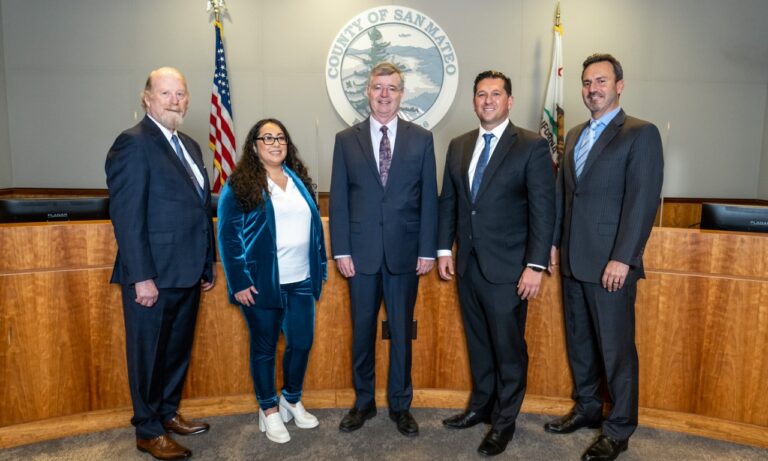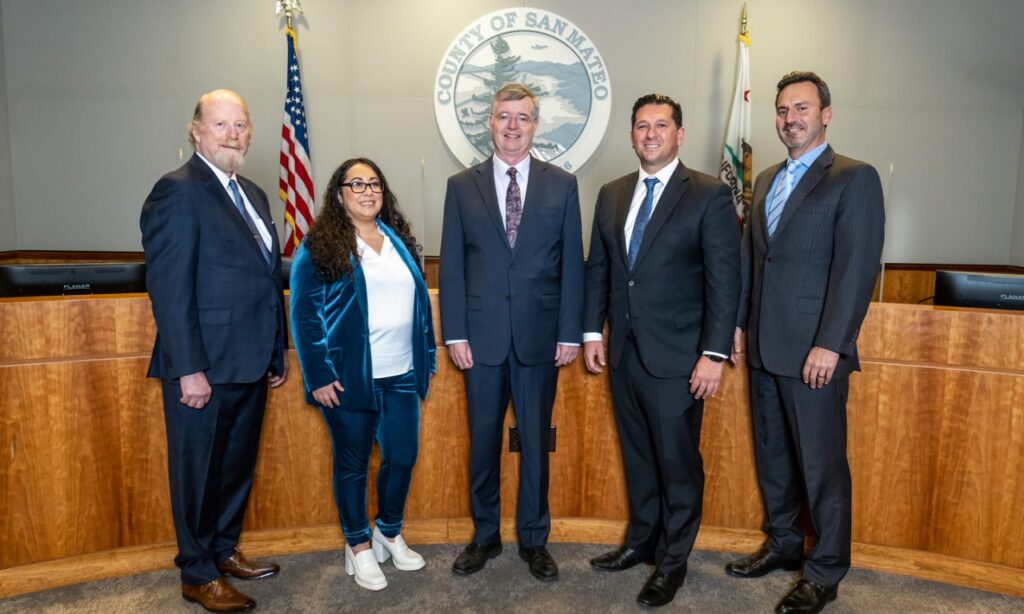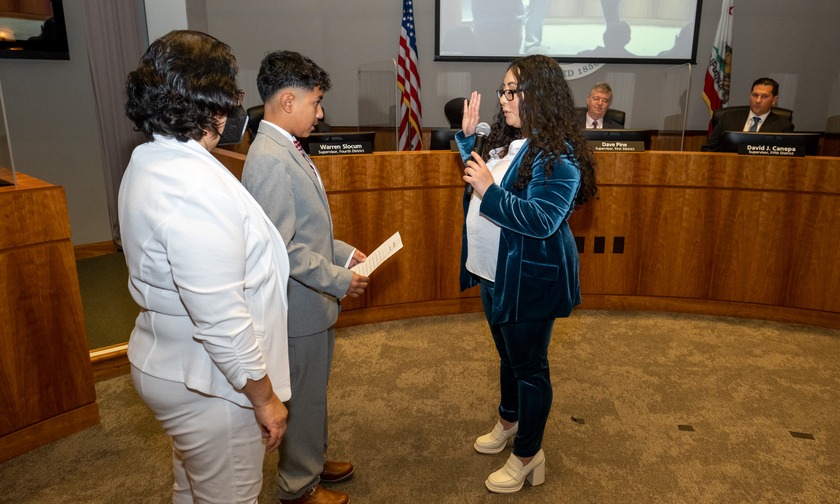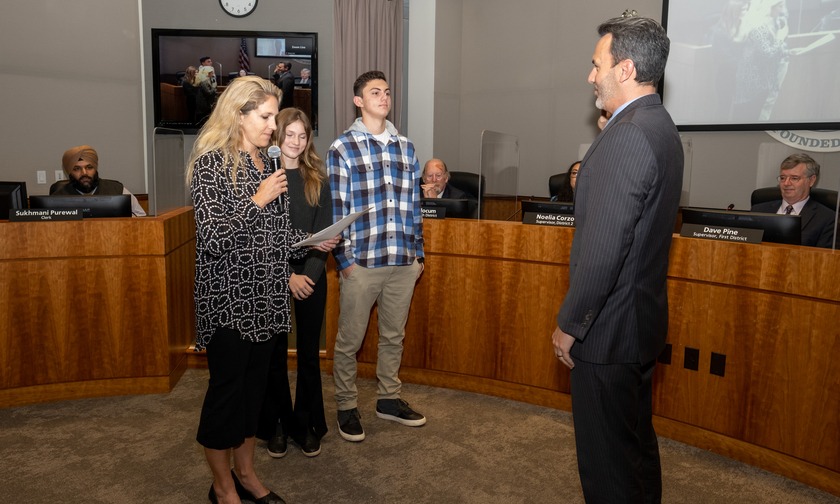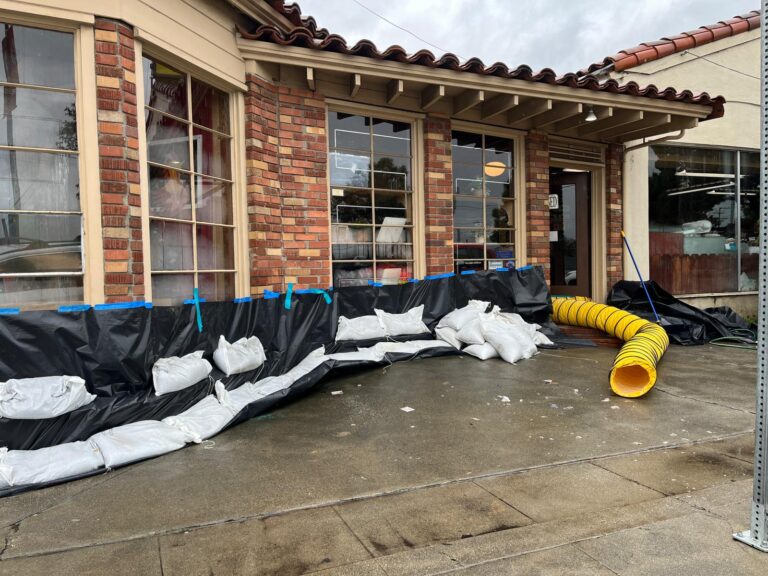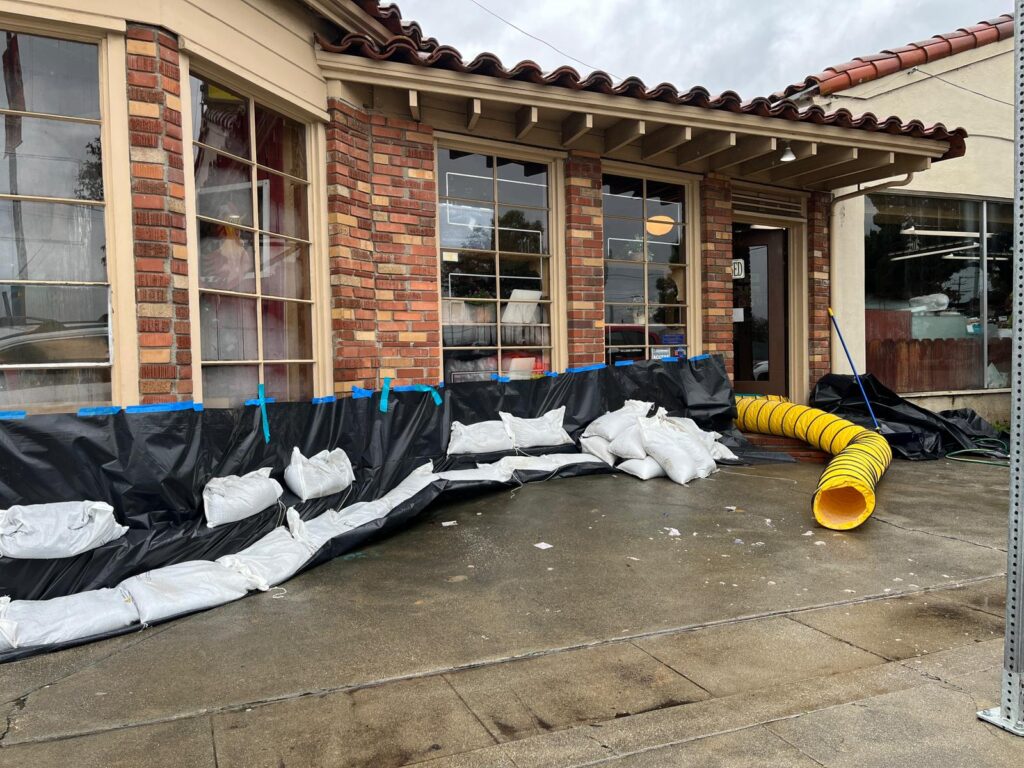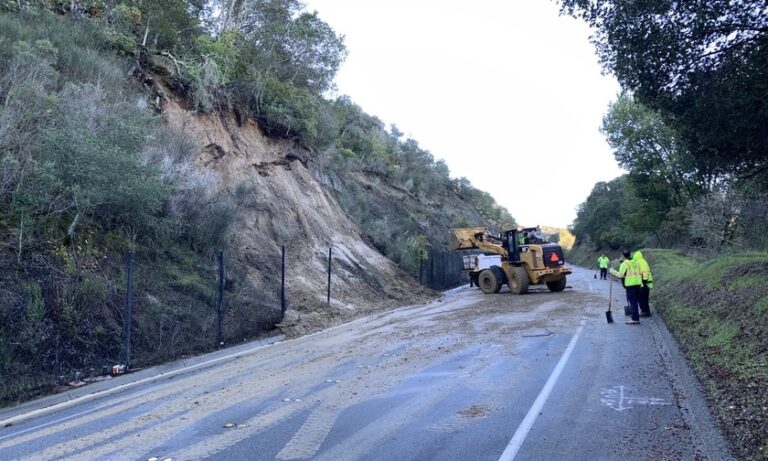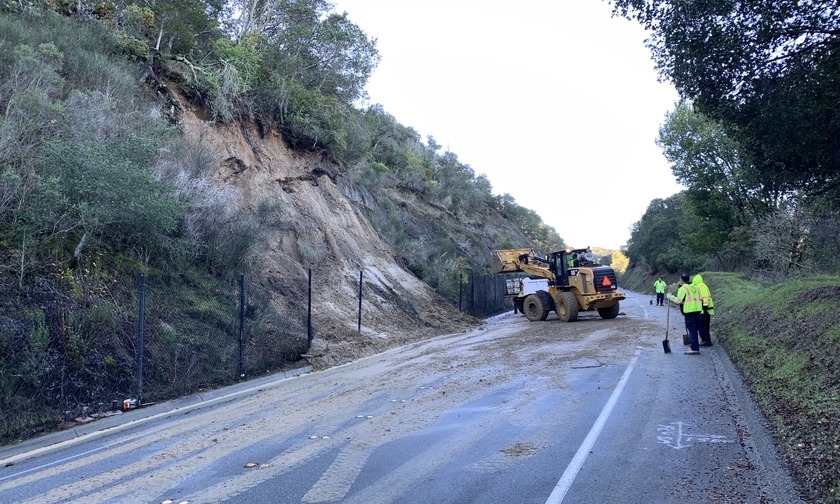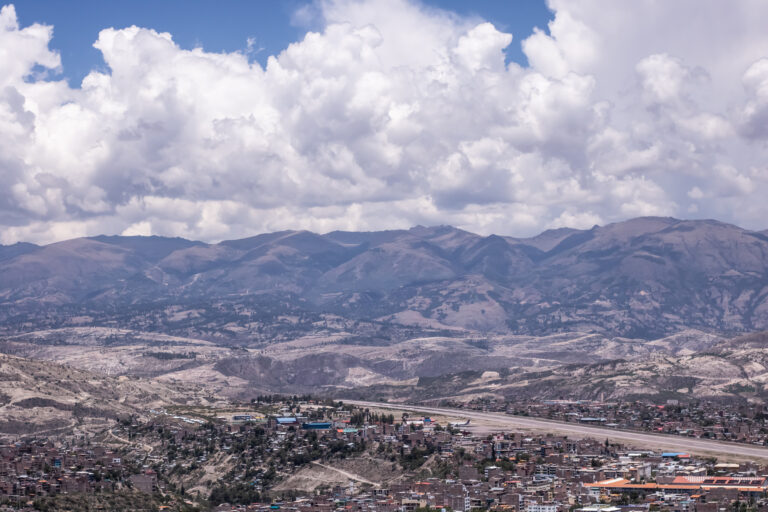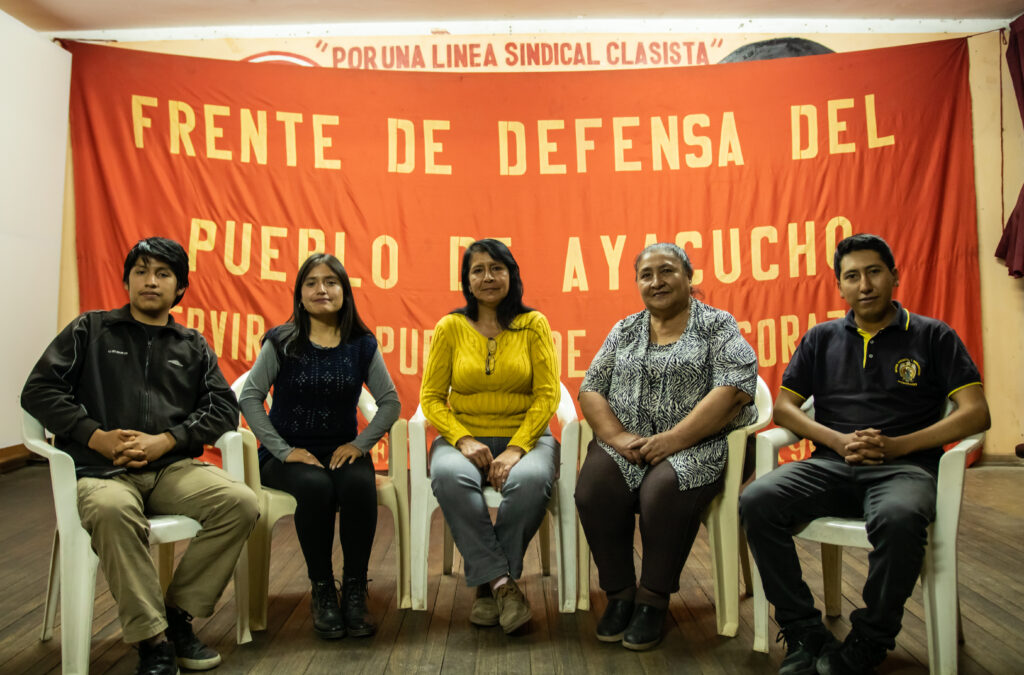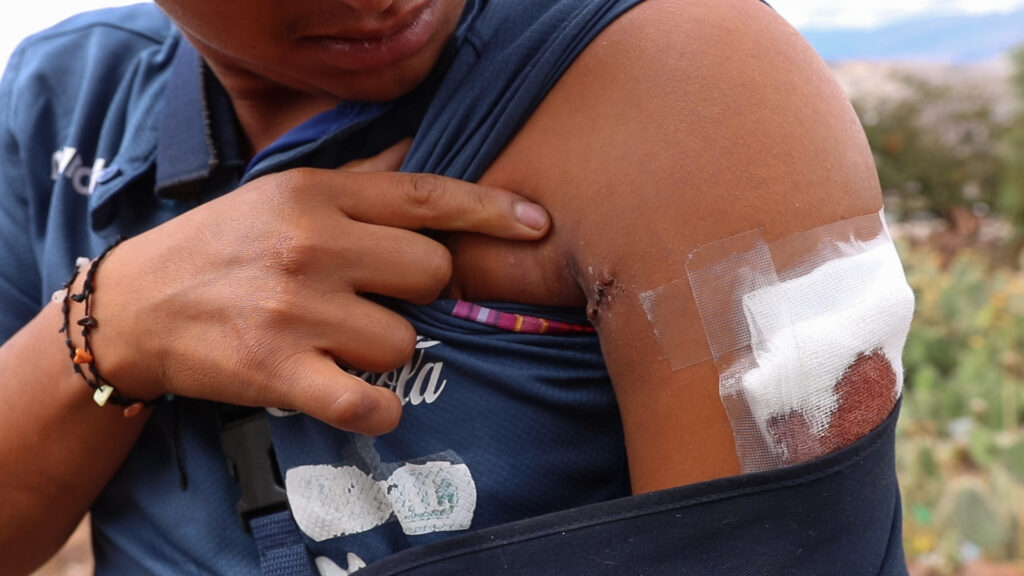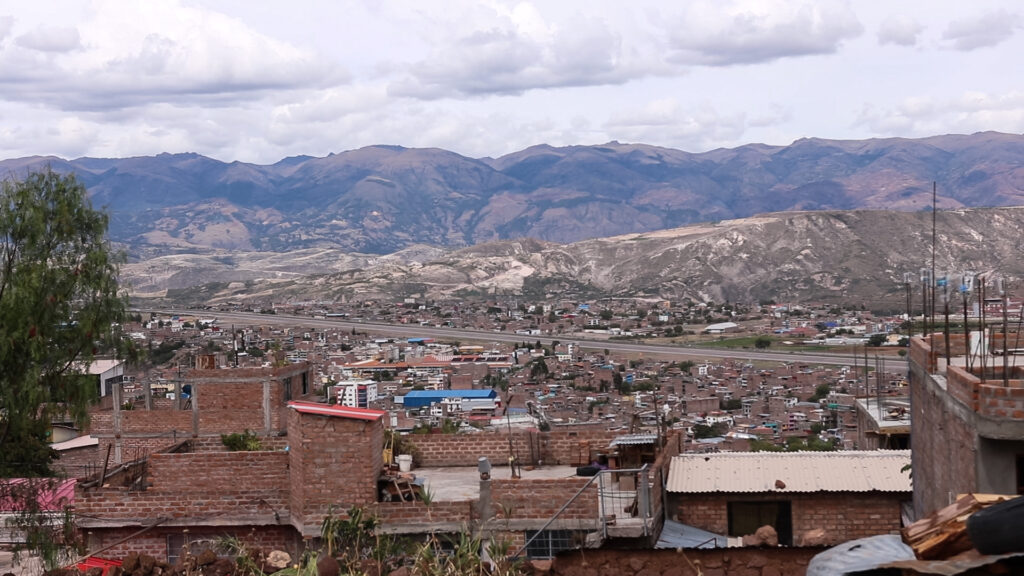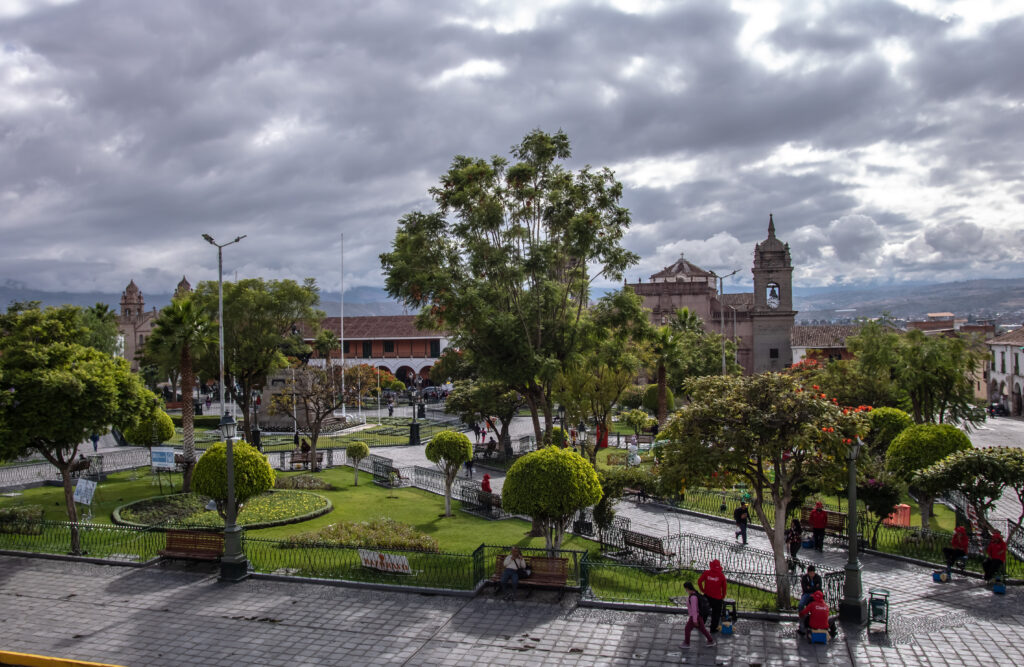
After a series of severe storms and a lull in high winds and rain, now is the time to prepare for power outages, road closures and other problems that could come with the next wave of storms, San Mateo County said.
“With a slight change in the weather, now is the time to prepare for the next wave of storms,” said Adam Ely, who is leading the county’s response to the series of storms that began over New Year’s weekend.
“Prepare an emergency kit in case you lose power. Make sure to pack some water and food in case you get stuck in your car,” Ely suggested. “And make sure you have a working flashlight.”
More intense weather is on the way.
The National Weather Service issued a high surf warning from Thursday night through early Friday morning, which would bring “very large waves of 20 to 30 feet and beach erosion.”
For this weekend, the Weather Service warns: “The steady flow of moisture funneling out of the tropical Pacific will continue through Saturday and gradually expand into more central parts of the state.”
With that in mind, the county has listed a number of helpful websites and phone numbers you may need in the coming days.
Preparation
Evacuations are always possible. If you are ordered to evacuate, leave quickly. Here's what to pack in an emergency kit. ‒Water, food and a flashlight are essential‒.
download one printable version to take with you to the store. Once you take a look at the basic items, consider what unique needs your family might have, such as pet or senior supplies.
Road closures and travel advisories
Caltrans offers a search tool of state roads and highways. You may also call 1-800-427-7623 for current road conditions.
The county provides a map and a search tool with local dangerous conditions, including road closures and advisories.
Ask the County Parks website for updates on when they are closed or reopening.
Support and resources
Call 9-1-1 only in emergencies. An emergency is any serious medical problem ‒ chest pain, seizures, bleeding‒, any type of fire ‒ business, car, building‒, any life-threatening situation ‒ fights, person with weapons‒ or to report crimes in progress.
Residents needing non-emergency storm-related assistance should call 2-1-1. This line can connect residents in need of shelter with county resources.
The county also provides links to resources in the county's 20 cities.
Sandbag Pickup Locations
The county provides a map of the pickup locations for residents of unincorporated areas, which includes most of the coast.
see this list of sandbag pick up locations for cities, with contact information to confirm availability.
emergency alerts
The county encourages all residents to enroll in SMC Alert, which sends emergency messages to emails, cell phones and other devices, and landlines.
Alert types include fire, weather, major utility outages, and disaster notifications.
Pacific Gas & Electric has a blackout map and It allows sign up for alerts by email, text message or phone.
Fallen trees
If branches become entangled in power lines, stay at least 25 feet away and call 9-1-1 immediately. Then call PG&E at 1-800-743-5000.
If you live in a city, please contact your public works department with questions or service requests.
The County Road Maintenance Division is responsible for emergency repairs and tree removal on the county's 315 miles of roads. Please contact the Public Works Department with questions or service requests.
Health and Safety Guidelines for Residents with Flooded Homes
The San Mateo County Health Department urges residents to to take precautions to protect themselves and their families. Flood water may contain untreated sewage, animal waste, toxic substances, chemical compounds, fungi, bacteria and other harmful materials.
school updates
The San Mateo County Office of Education provides updates on the school closures. You can also find and contact your district local school.
You may be interested in: Redwood City proclaims local emergency due to heavy rain


